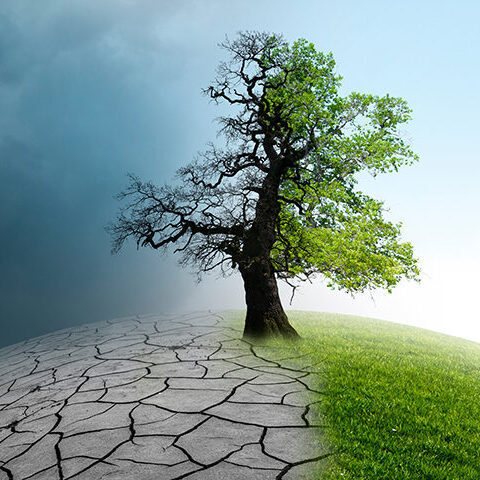Connecting philosophy, science and technologies for coviability
Big data, transdisciplinary synthesis and socioecological innovations
We live in a world where ecosystems, societies and economies undergo rapid changes. In the natural world, climate change and the collapse of entire ecosystems alert us that we need to intensify our efforts to overcome the environmental crisis. On the other hand, in science and technology, extraordinary tools - such as artificial intelligence and an unprecedented amount of data - can be articulated as e-Science tools under Open Science approaches to foster innovative solutions reconciling nature, society and economy.
Developing integrative solutions for the socio-environmental crisis requires us to take advantage of the underexplored potential of information technologies to pursue Sustainable Development Goals. As we improve our understanding of multiple ongoing changes in the natural world and the emerging trends and tools in the digital world, the perception that we need a novel way of making Science becomes evident.
A fundamental aspect of this era in which we live is that the magnitude of changes caused by humans in ecosystems has reached an unprecedented level, leading scientists to define a new geological and biogeographical epoch called AnthropoceneAlthough this understanding initially emerged within the scope of the Natural Sciences, it now unfolds in multiple transdisciplinary perspectives on the era of humans on Earth.
Anthropocene
A new geological and biogeographical epoch in which human activities are the main force shaping biological and geochemical processes on Planet Earth, with far-reaching consequences for hunans and non-humans alike (see Ellis 2015 and references therein).
Coviability: a key concept connecting e-Science and Sustainability
The application of information technologies to shape the fundamental properties of resilient bioeconomies requires a conceptual cornerstone facing the challenges of the Anthropocene. The concept-paradigm of socioecological coviability is the philosophical foundation on which we are building a transdisciplinary approach connecting Information and Sustainability Sciences. The idea of coviability assumes the fair and persistent coexistence between human and non-humans on resilient socioecosystems. Therefore, thinking about co-viability strategies requires information synthesis and the design of transdisciplinary and integrative approaches to ecosystem processes combined with social and productive inclusion.
An integrated focus on the fundamental tripod of coviability – nature, economy and society – is the departing point for knowledge synthesis from large data sets ( big data), subsidizing genuinely innovative applications. In other words, the coviability paradigm is a philosophical guide for navigating a sea of information via social, economic and environmental indicators useful for both decision-making and social, economic and ecological innovations.
Big data and transdisciplinarity: references for research, governance and environmental education in the Information Age
We project was proposed to connect the most recent advances in Information Science with the emerging Sustainability Science. Therefore, DATAPB represents a cyberinfrastructure and a community of researchers, policymakers, educators and community leaders engaged in constructing socio-ecological innovations for territorial transformation. You can explore our website to learn more about our theoretical frameworks, open data, technological tools and pilot projects.
Regarding our theoretical references, we highlight as relevant subjects deserving further reading the paradigms listed below, which you can explore by clicking on the links:
- Open Science and e-Science
- FAIR principles and open data
- Socioecological Coviability
- Principles to promote socioecological resilience
- Adaptive Governance
Regarding our pilot projects and associated technological tools, we suggest that you visit our guiding page for DATAPB projects and tools. for an overview and links to specific contents.

+Anthropocene
The environemental crisis
from the Human Sciences perspective
Click on the red icon below to watch the talk (in Portuguese).
Alyne Costa (UFRJ)
Winner of the CAPES award
Cosmopolitics of the Earth: modes of existence and resistance in the Anthropocene
Keynote talk opening UFPB Campus IV's Permanent Forum on Sustainability (2020)
